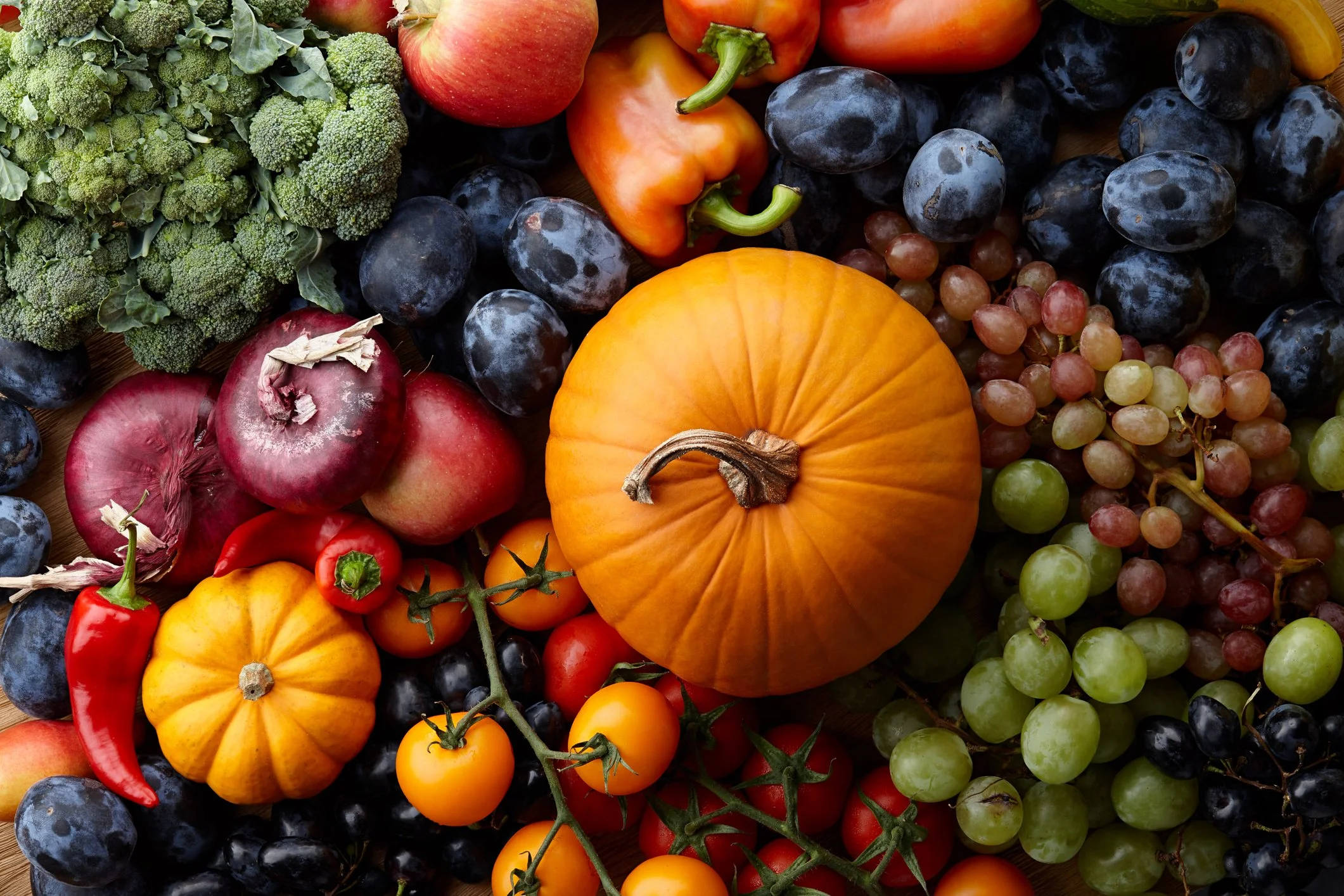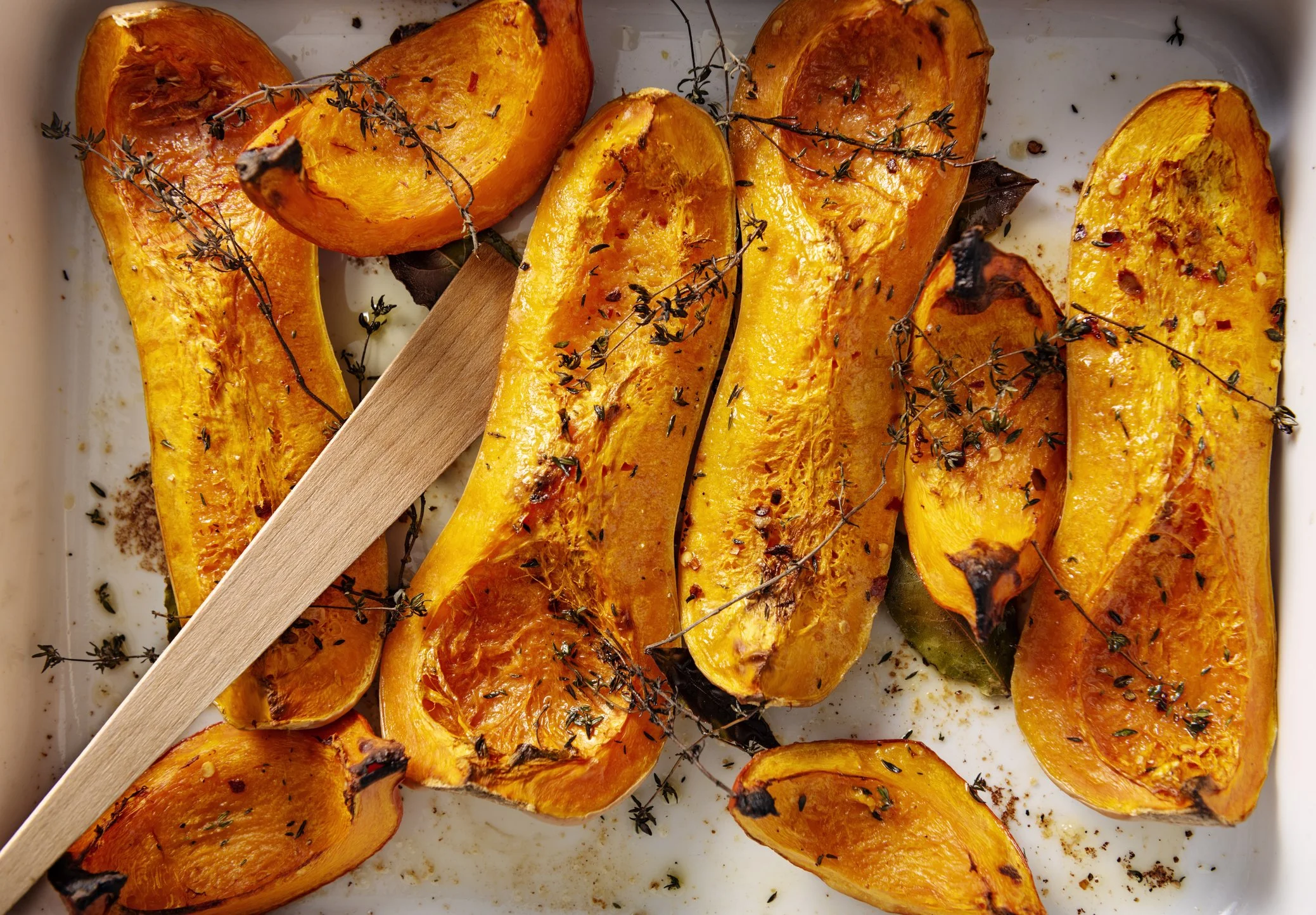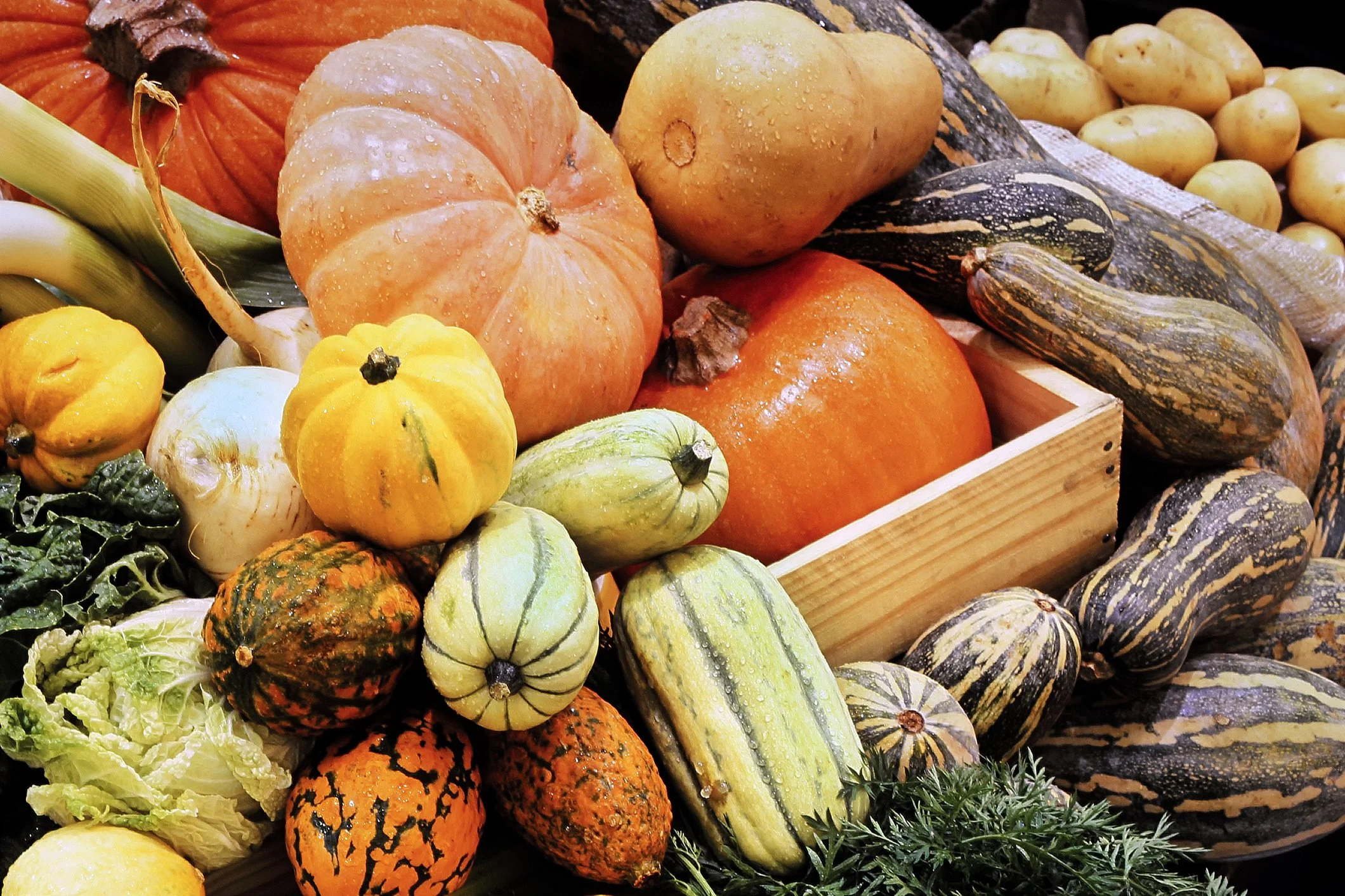The Health Benefits of Autumn Squash | A Nutrient-Dense Seasonal Superfood
Hi friends, Megan K. here with some insight into a seasonal fan-fave, autumn squash.
What I love about this beauty are the vast varieties like butternut, acorn, delicata, and spaghetti squash, which is a nutrient-dense food that offers a host of health benefits. As the weather cools and these hearty squashes come into season, they become a popular choice in comforting fall dishes. Not only are they versatile and flavorful, but they also provide essential vitamins, minerals, and antioxidants. Here are some key benefits of incorporating autumn squash into your diet:
Rich in Vitamins & Minerals
Autumn squash is a powerhouse of essential nutrients, particularly vitamins A and C. Butternut and acorn squash, for example, are excellent sources of vitamin A, which is crucial for eye health, immune function, and skin integrity. A single serving of butternut squash provides more than the recommended daily intake of vitamin A.
Squash is also high in vitamin C, which supports immune health, skin repair, and wound healing. Additionally, autumn squash contains other important nutrients like potassium, which helps regulate blood pressure, and magnesium, which is essential for muscle function and bone health.
High in Antioxidants
The bright orange and yellow hues of many squash varieties are a sign of their rich antioxidant content. Specifically, autumn squash is high in beta-carotene, an antioxidant that the body converts into vitamin A. Beta-carotene helps protect cells from oxidative stress, reduces inflammation, and may lower the risk of chronic diseases, such as heart disease and certain cancers.
Additionally, other antioxidants like vitamin E and lutein are present in squash, which support eye health and help protect against age-related macular degeneration.
Supports Digestive Health
Autumn squash is a good source of dietary fiber, particularly when consumed with the skin. Fiber is essential for maintaining healthy digestion, promoting regular bowel movements, and preventing constipation. It also helps regulate blood sugar levels by slowing down the absorption of carbohydrates, making squash a great option for people with or at risk of diabetes.
The fiber in squash can also help you feel fuller for longer, which can aid in weight management.
Low in Calories, but Filling
Despite being nutrient-dense, autumn squash is relatively low in calories, making it a great option for those looking to maintain or lose weight. For example, a cup of cooked butternut squash has about 82 calories, but it’s rich in fiber and water, making it very filling. This combination of high fiber, water content, and low calorie density makes autumn squash an ideal food for curbing hunger while providing plenty of nutrients.
Promotes Heart Health
The high levels of potassium found in autumn squash can help support heart health by regulating blood pressure. Potassium helps counteract the negative effects of sodium in the body, which is important for maintaining healthy blood pressure levels. Additionally, the fiber content in squash can help reduce cholesterol levels, further benefiting cardiovascular health.
The antioxidants in squash also help reduce inflammation and protect the arteries from oxidative damage, lowering the risk of heart disease.
Supports a Healthy Immune System
Autumn squash is packed with immune-boosting vitamins like A and C. Vitamin A helps maintain the health of the skin and mucous membranes, which are the body’s first line of defense against pathogens. Meanwhile, vitamin C stimulates the production of white blood cells, which fight infections. Eating squash regularly during the colder months may help strengthen the immune system and protect against seasonal illnesses like colds and flu.
Versatile & Easy to Incorporate into Meals
One of the greatest benefits of autumn squash is its versatility in the kitchen. You can roast, puree, steam, or stuff squash to create a variety of dishes. Butternut squash can be used in soups, casseroles, or mashed like potatoes. Spaghetti squash makes a great low-carb substitute for pasta, while acorn squash can be roasted and stuffed with grains, vegetables, or meat.
Its mild, sweet flavor pairs well with a wide range of seasonings, from savory herbs and spices to sweet additions like cinnamon and maple syrup, making it easy to incorporate into many different types of meals.
Anti-Inflammatory Properties
The rich phytonutrients found in autumn squash, particularly the carotenoids like beta-carotene and lutein, have powerful anti-inflammatory properties. Chronic inflammation is linked to numerous diseases, including heart disease, cancer, and diabetes. Including anti-inflammatory foods like squash in your diet can help reduce inflammation and lower your risk of these conditions.
Fall into Autumn Squash & Enjoy
Eating autumn squash not only brings delicious seasonal flavors to your table but also provides a wealth of health benefits. From boosting immune health and supporting digestion to promoting heart health and reducing inflammation, squash is a nutrient-rich food that should be a staple during the fall months. Its versatility in the kitchen makes it easy to enjoy in a variety of dishes, ensuring you can reap the benefits all season long.






